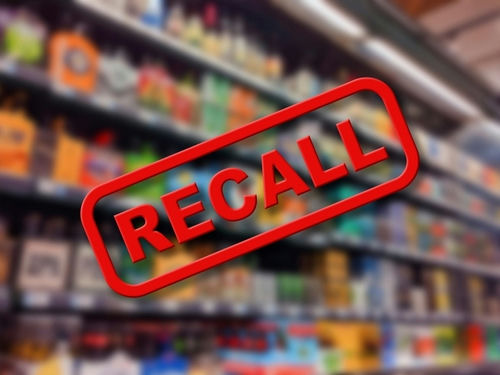Only in modern America could a handful of organic blueberries spark a national recall fiasco—complete with government panic buttons, bureaucratic muscle-flexing, and a fresh round of questions about whether the system is protecting us or just flexing its regulatory biceps for the cameras.
The FDA’s “All-Hands-on-Deck” Over Blueberries—Is This Common Sense or Just More Government Overreach?
The FDA wasted no time in slapping a Class I recall—their highest, reserved for products that “could cause serious health consequences or death”—on a shipment of organic blueberries. The culprit? A routine test found traces of Listeria monocytogenes in two lots out of Alma Pak International’s Georgia facility. Here’s the kicker: all 400 boxes (that’s 12,000 pounds) were intercepted and fully recovered before reaching a single consumer. Not one blueberry made it to a retail shelf, yet the bureaucratic wheels spun into overdrive. It’s a master class in how a handful of bacteria can trigger a nationwide regulatory spectacle, regardless of actual risk.
By July 1, the FDA had officially classified the situation as a Class I recall, unleashing a flurry of press releases, regulatory filings, and industry alerts. The company, eager to avoid a PR meltdown, assured everyone that no contaminated berries were ever available to the public. Alma Pak doubled down on corrective actions—intensifying testing, ramping up environmental monitoring, and promising even more “vector sampling.” If only our border security and fiscal discipline got the same kind of attention and urgency from federal agencies.
Food Safety, Supply Chains, and the Collateral Damage of Bureaucracy
This episode landed right as Georgia’s blueberry crop was already battered by bad weather and lousy pollination, shrinking yields by up to 40%. That’s what happens when you depend on nature and common sense—two things that don’t seem to be high on the government’s priority list these days. The recall affected just one North Carolina customer, who never sold or distributed the blueberries. All of this, and yet, the entire blueberry sector gets tossed into the spotlight, its reputation and bottom line at risk.
The FDA has issued a Class I recall over contaminated organic blueberries.
It’s not just about one batch — it’s a warning sign for the entire food system.
Read the full story for the deeper context.https://t.co/T2riNQB9VE pic.twitter.com/FtO41BsqD1— FreshFruitPortal.com (@FruitPortal) July 4, 2025
Historically, the blueberry industry has maintained a strong food safety track record. But thanks to the modern web of global supply chains, even a single positive test in a controlled lot can launch a nationwide panic. It’s a reminder that as we chase “zero risk,” the collateral damage is often trust, industry stability, and a little more of our collective sanity. The FDA claims it’s all about vigilance, but how often does that vigilance morph into a show of force for the sake of headlines and job security?
Industry Response: Proactive or Just Playing Defense Against Regulatory Theater?
Alma Pak International’s response was textbook damage control. The company insists that its testing and recall protocols worked flawlessly—no tainted fruit reached the public, no illnesses reported, and every measure was taken to ensure this never happens again. They even brought in more experts to ramp up environmental surveillance. This is what happens when you know the Feds are watching: you overcompensate, spending more on compliance than on innovation, all to avoid becoming the next scapegoat in the government’s never-ending drama of “public safety.”
Meanwhile, the FDA continues its oversight, monitoring compliance, and issuing public updates. The recall stands as a case study in how regulatory muscle can overshadow common sense. While the food safety system arguably worked—catching a problem before it became a crisis—the breathless response and heavy-handed classification seem more about optics than actual risk. The American public remains untouched, but the industry takes the hit, forced to justify itself for a problem that never reached the marketplace.
Who Benefits? Trust, Vigilance, and the Cost of Overreaction
The short-term impact is minimal—no one got sick, no contaminated berries sold, and the recall was executed flawlessly. Long-term, the blueberry industry and other food producers are left to ponder the cost of a system that prizes regulatory theater over practical risk management. Compliance costs will climb, supply chains will grow more cautious, and consumers will once again be told to “trust the system”—even as that system seems designed to cover every bureaucratic base but the ones that matter most to ordinary Americans.
The FDA issued a Class I risk level for a recall of 12,000 pounds of organic blueberries due to possible listeria contamination. https://t.co/DSxb77qdw7
— Lansing State Journal (@LSJNews) July 3, 2025
On the bright side, this incident does show that routine testing and rapid response can work—when industry and regulators act with common sense, not just for show. But as global supply chains expand and the food police keep their sirens blaring, it’s fair to ask: how much of this is about real safety, and how much is about justifying another round of government budgets, press releases, and regulatory overreach?
Sources:
Healthline: Blueberry Recall Listeria Contamination

